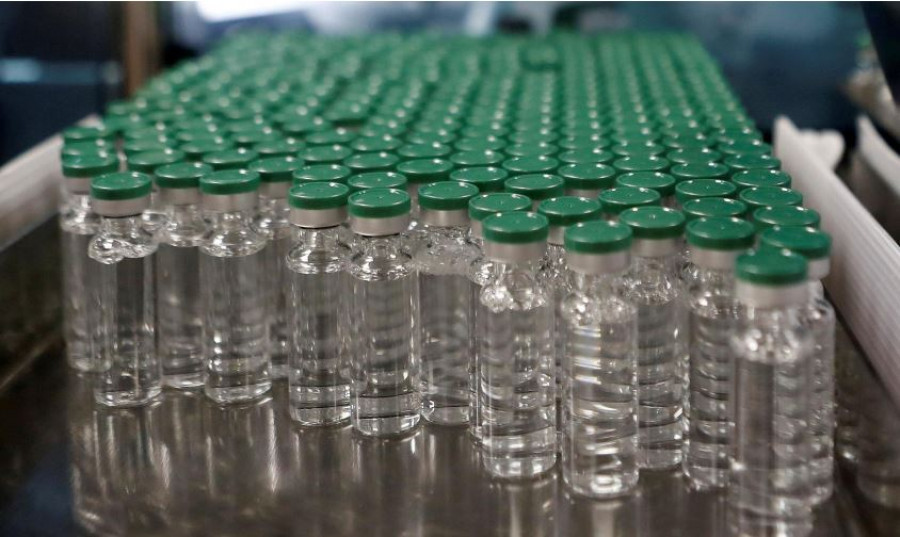Editorial
The wait for the first jab
The government cannot let the lack of infrastructure come in the way of Covid-19 vaccination drive.
With Nepal's drug regulator giving emergency use approval for Covishield, the Covid-19 vaccine developed by Oxford-AstraZeneca and produced regionally by the Serum Institute of India, the country is finally gearing up for a mass inoculation drive. The government is understood to be holding high-level talks to import the vaccines at the earliest. India on Tuesday announced it would begin to supply vaccines from Wednesday as a goodwill gesture to neighbouring countries including Nepal. So we can expect to see the first jab being given by the end of the month.
But the actual inoculation drive will be a hard nut to crack, owing to the poor health infrastructure across the country. Although Covishield, Nepal's preferred vaccine, suits the local storage and transport infrastructure, health care workers from remote parts have pointed out how up to 80 percent of other vaccines often go to waste for want of cold chain maintenance. The government cannot let the lack of infrastructure come in the way of the inoculation drive as we have got enough time to prepare for the same.
The fact that health facilities are unavailable in remote areas makes the inoculation drive a difficult task due to the risk of possible health complications as side effects of the vaccine remain. India has reported over 500 cases of adverse reaction even as thousands of people have skipped the vaccination drive. Bharat Biotech, the manufacturer of Covaxin, one of the two vaccines to have received emergency use approval in India, has warned people with existing medical conditions not to take the jab. Considering these complications, the Nepal government must ensure that the inoculation drive is supported by an able health care infrastructure.
Moreover, Nepal must take into consideration the existing structural problems that may hinder the efficiency of the inoculation drive. Globally, the vaccines have become 'another brick in the wall of inequality between the world's haves and have-nots', as World Health Organisation Director-General Dr Tedros Adhanom Ghebreyesus warned on Monday, asking people not to jump the line for taking Covid-19 jabs. Nepal must ensure that the rich and the powerful do not jump the Covid-19 vaccine queues. The vaccines will have to be made available to everyone sooner than later, but right now, it is important to inoculate the most vulnerable and those on the frontlines so that we make a protective shield for communities and populations.
The Nepal government has promised to vaccinate 20 percent of the population that is at the highest risk—the frontline workers, elderly people and those with underlying conditions. It must also introduce a separate policy to ensure universal coverage so that no one is left out of the opportunity to be jabbed. As the existence in Nepal of the new variant of the coronavirus that was identified in the United Kingdom a month ago has been confirmed, there is no denying that we are still racing against time when it comes to tackling the Covid-19 pandemic. The challenge now is to expedite the process to inoculate the population to minimise the risk of new transmissions of the earlier variant as soon as possible.



 9.7°C Kathmandu
9.7°C Kathmandu














